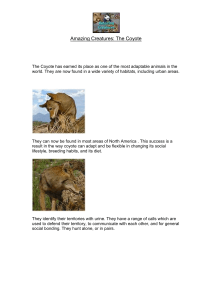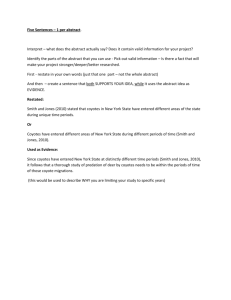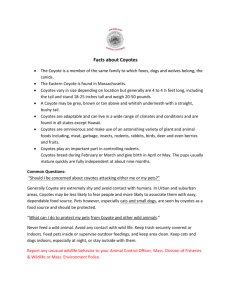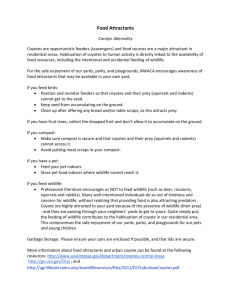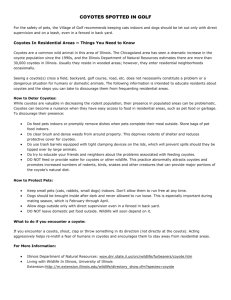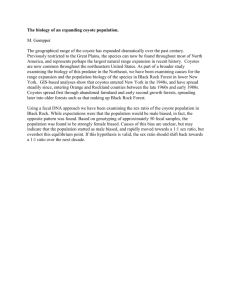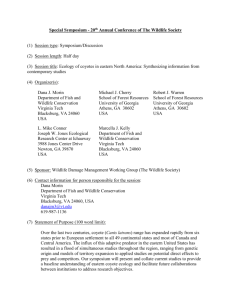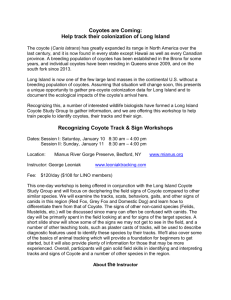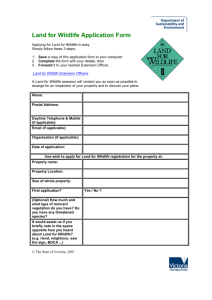Decatur Animal Services Q&A
advertisement
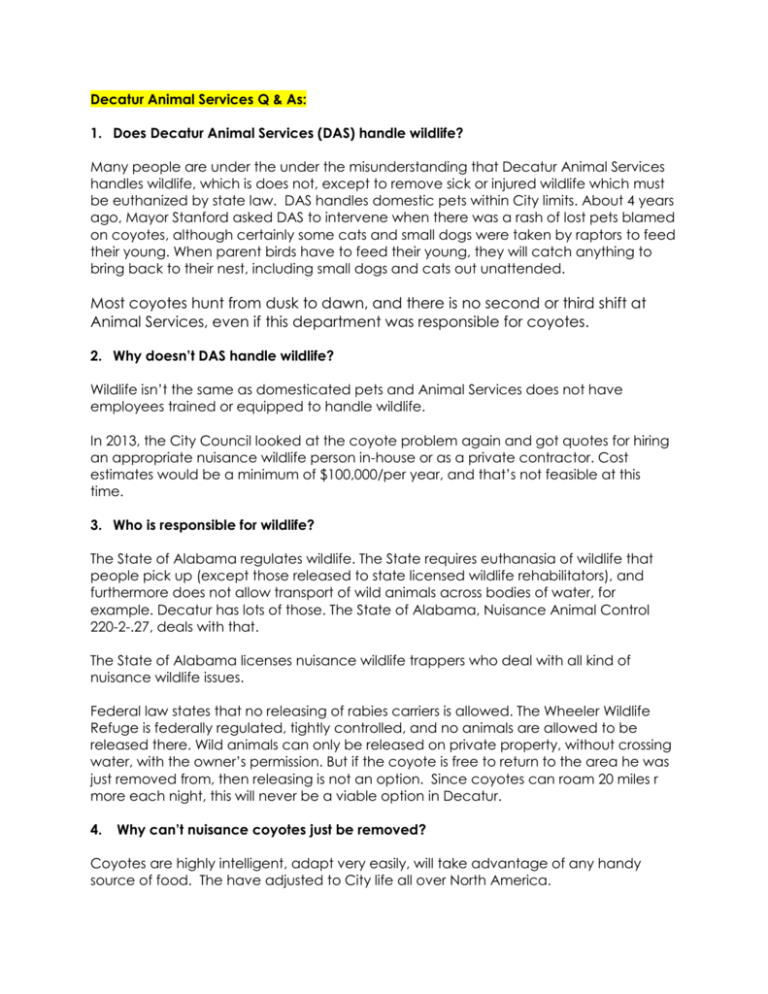
Decatur Animal Services Q & As: 1. Does Decatur Animal Services (DAS) handle wildlife? Many people are under the under the misunderstanding that Decatur Animal Services handles wildlife, which is does not, except to remove sick or injured wildlife which must be euthanized by state law. DAS handles domestic pets within City limits. About 4 years ago, Mayor Stanford asked DAS to intervene when there was a rash of lost pets blamed on coyotes, although certainly some cats and small dogs were taken by raptors to feed their young. When parent birds have to feed their young, they will catch anything to bring back to their nest, including small dogs and cats out unattended. Most coyotes hunt from dusk to dawn, and there is no second or third shift at Animal Services, even if this department was responsible for coyotes. 2. Why doesn’t DAS handle wildlife? Wildlife isn’t the same as domesticated pets and Animal Services does not have employees trained or equipped to handle wildlife. In 2013, the City Council looked at the coyote problem again and got quotes for hiring an appropriate nuisance wildlife person in-house or as a private contractor. Cost estimates would be a minimum of $100,000/per year, and that’s not feasible at this time. 3. Who is responsible for wildlife? The State of Alabama regulates wildlife. The State requires euthanasia of wildlife that people pick up (except those released to state licensed wildlife rehabilitators), and furthermore does not allow transport of wild animals across bodies of water, for example. Decatur has lots of those. The State of Alabama, Nuisance Animal Control 220-2-.27, deals with that. The State of Alabama licenses nuisance wildlife trappers who deal with all kind of nuisance wildlife issues. Federal law states that no releasing of rabies carriers is allowed. The Wheeler Wildlife Refuge is federally regulated, tightly controlled, and no animals are allowed to be released there. Wild animals can only be released on private property, without crossing water, with the owner’s permission. But if the coyote is free to return to the area he was just removed from, then releasing is not an option. Since coyotes can roam 20 miles r more each night, this will never be a viable option in Decatur. 4. Why can’t nuisance coyotes just be removed? Coyotes are highly intelligent, adapt very easily, will take advantage of any handy source of food. The have adjusted to City life all over North America. There are still Decatur residents who bait coyotes in to residential areas to watch them feed. There are lots of people who still put out bird feeders with seeds that fall to the ground as birds feed. The seeds attract squirrels, mice, chipmunks, rats, etc., all of which are coyotes normal diet. If a coyote comes in to catch a squirrel but sees a convenient small dog or cat, he will take the easiest, quickest and biggest meal. There are still people who leave food out for their pets, which coyotes are happy to eat. That is like baiting the coyotes to their pets. Coyotes are too savvy about traps to be caught for the most part. It’s next to impossible to have police officers available at the right time and place to safely shoot coyotes within City limits. Poison cannot be used because of the danger to children and pets. And so forth. 5. What can people do? The bottom line is Decatur is next to the Wheeler Wildlife Refuge. There will always be coyotes in Decatur. If people choose to have outside pets, they themselves must protect their pets from predators like coyotes and raptors. They do that by making their property unattractive to coyotes (see other articles about coyote deterrents and making your yard unattractive to coyotes; getting their neighbors to do the same, including removal of outside foods; and most importantly, never, never, never leaving their pets outside unattended. When pets are left outside alone, they are coyote fast food.
